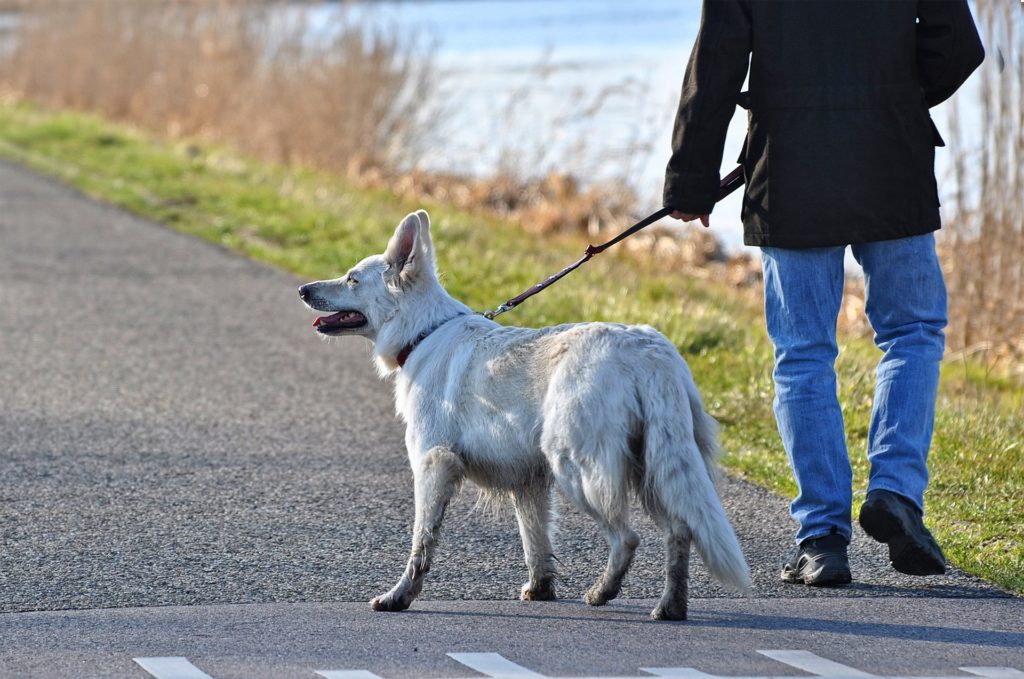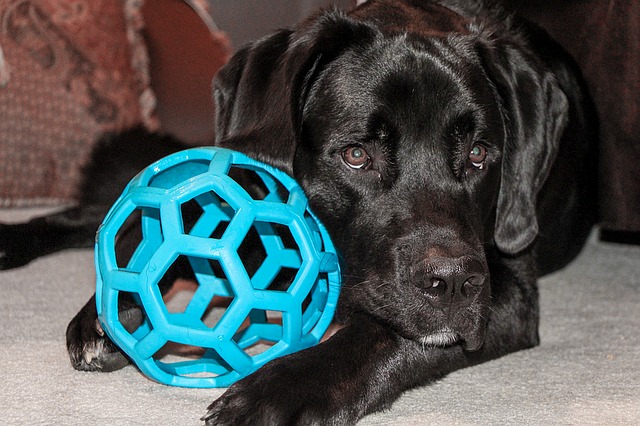You’ve searched the shelters, done your homework, and now it’s finally time to bring your newest family member home for the first time. The car ride is full of excitement, and you’ll spend the first few hours playing with your new dog, but it’s time to ask yourself the important question of, “What’s next?”
Being a good pet parent isn’t all belly rubs and tasty treats. It’s your responsibility to ensure your new dog is healthy, happy, and well taken care of. Being a dog owner is a learning experience, and you’ll face countless questions in the weeks, months, and even years ahead. There will be moments of stress and indecision, but with the right kind of help, both you and your pup will be better off together.
Here’s a list of the top tips every first-time dog owner needs to know.

#1 – Expect changes to your budget.
Food, supplies, vet bills, training—the list of necessary pet expenses goes on. Money Under 30 reports new dog owners can expect to spend over $1,200 the first year of pet ownership. Smaller dogs are less of a financial commitment than big dogs with big appetites, but all pets warrant a change to your budget.
There will be consistent costs like food and toys to plan for, and then there are the unexpected emergencies. A scary medical problem or injury will come with a hefty vet bill, and don’t forget to leave room for a pet sitter or boarding facility in your vacation budget.
#2 – Find a reliable vet.
Having a relationship with a reliable veterinarian could literally be a lifesaver for your new dog. There will be moments when you wonder if your dog is acting strangely or you’re not sure the best way to handle a situation. In all these instances, your vet will be your most valuable resource.
Dogs need regular check-ups and vaccinations, and you’ll have peace of mind knowing if something happens, your vet is there to help.

#3 – Be willing to adjust your schedule.
Dogs need exercise, training, and a whole lot of attention. High-energy dogs won’t sit silently on the couch while you’re busy with other things, and even couch-potato pups need time with their owners.
Bringing a pet into your home will be an adjustment for both you and your four-legged friend. You can make the transition easier by being open with your schedule. Start thinking about how you can incorporate your dog’s needs into your daily routine.
#4 – Invest in good cleaning supplies.
Dogs are dirty, there’s no way around it. They like to walk through mud puddles and then track their paw prints across your freshly cleaned floor. They have a habit of rolling in questionable outdoor debris and immediately plopping down on your brand new couch. There’s also house training mishaps and shedding to think about. It’s best to accept these facts early on and face them with a sense of humor and an arsenal of cleaning supplies.

#5 – Don’t wait to train.
Whether you’ve adopted a puppy, an adult dog, or an aging senior, training should be one of the first things you do. It’s normal to want to spend the first few days or weeks playing, but without proper training, you’re setting you and your dog up for a strained relationship. American Kennel Club advises dog owners,
“To start off on the right foot (and paw!) with your pup, he’ll need to know what you expect from him. This will make him feel secure in his ability to meet the goals laid out for him going forward.”
#6 – Respect leash laws.
A lot of dog owners imagine themselves and their dogs wandering trails without the hindrance of a leash getting in the way. It sounds nice, but leash laws exist for a reason. First, there’s the fact not every dog has mastered the difficult skill of off-leash walking. To do it safely, your dog has to come when called 100% of the time, no matter what they see, hear, or smell. You can save yourself the traumatic experience of losing your dog by always using a leash. The dog owner behind Vet Changes World points out,
“A leash provides emergency control over your pet. Bad things are simply more likely to happen if your dog is running loose. A court may feel letting your dog off leash shows a reckless lack of concern for those around you. If something goes wrong, you could find yourself in a lot of hot water.”

#7 – Buy the right food.
Walk down the dog food aisle, and you’ll be faced with a wall of options in all different price ranges. It’s tempting to reach for the most affordable bag, but remember your dog’s health depends on the food they eat. It won’t be cheap, but they deserve a dog food that provides all their nutritional requirements.
Research terms like “grain-free” and “whole meat” to determine what kind of food is best for your furry best friend. Dog Food Advisor and Truth About Pet Food are also good places to do some research. Once you make your decision, read the bag to determine the correct serving size, and most importantly, consult with your vet. Overeating easily leads to obesity and a shortened lifespan.
#8 – Indulge in canine enrichment activities.
Canine enrichment is all about developing your dog’s mind, body, and improving their quality of life. Dogs need opportunities to learn and explore. Enrichment activities like playing with feeder toys and snuffle mats add diversity and stimulation to your dog’s life. It keeps them entertained, engaged, and focused on learning. You can also involve your dog in organized canine activities like agility, nosework, and lure coursing. A dog owner’s responsibility is to not only keep their dog alive, but to help them live their best life.

#9 – Make socialization a priority.
Your dog’s social life is an important part of their upbringing. If you want them to be comfortable around new people, play well with other dogs, and remember their obedience lessons while out in public, you’ll need to start socialization soon after bringing them home.
As with training, how you go about socialization will depend on where your dog currently is in the process. New puppies are on square one, and some older rescue dogs also need to start from the beginning. Make it a priority to regularly introduce them to new people, places, and animals.
10. Practice patience.
Owning a dog will fill your life with fun, affection, and loyal companionship, but that doesn’t mean they won’t push your buttons. Dogs are complete individuals, and odds are, they won’t meet every expectation you have built up in your head.
You can train them and do everything “right,” but don’t have expectations for your relationship. There will be times when they destroy your favorite pair of shoes and soil your new carpet. They’ll forget all their obedience lessons the first time you test them in public, and there will be days when they don’t listen to a word you say. In these times, it’s important to be patient. Nothing happens overnight.
You don’t need years of experience to give a dog everything they need in life. You’ll have questions and make mistakes, but making an effort to be the best pet parent you can be is the first step. It isn’t always easy, but being a good dog owner is all about making decisions for the good of your pet and committing yourself to their long-term care.
Sources: Money Under 30, AKC, Vet Changes World
